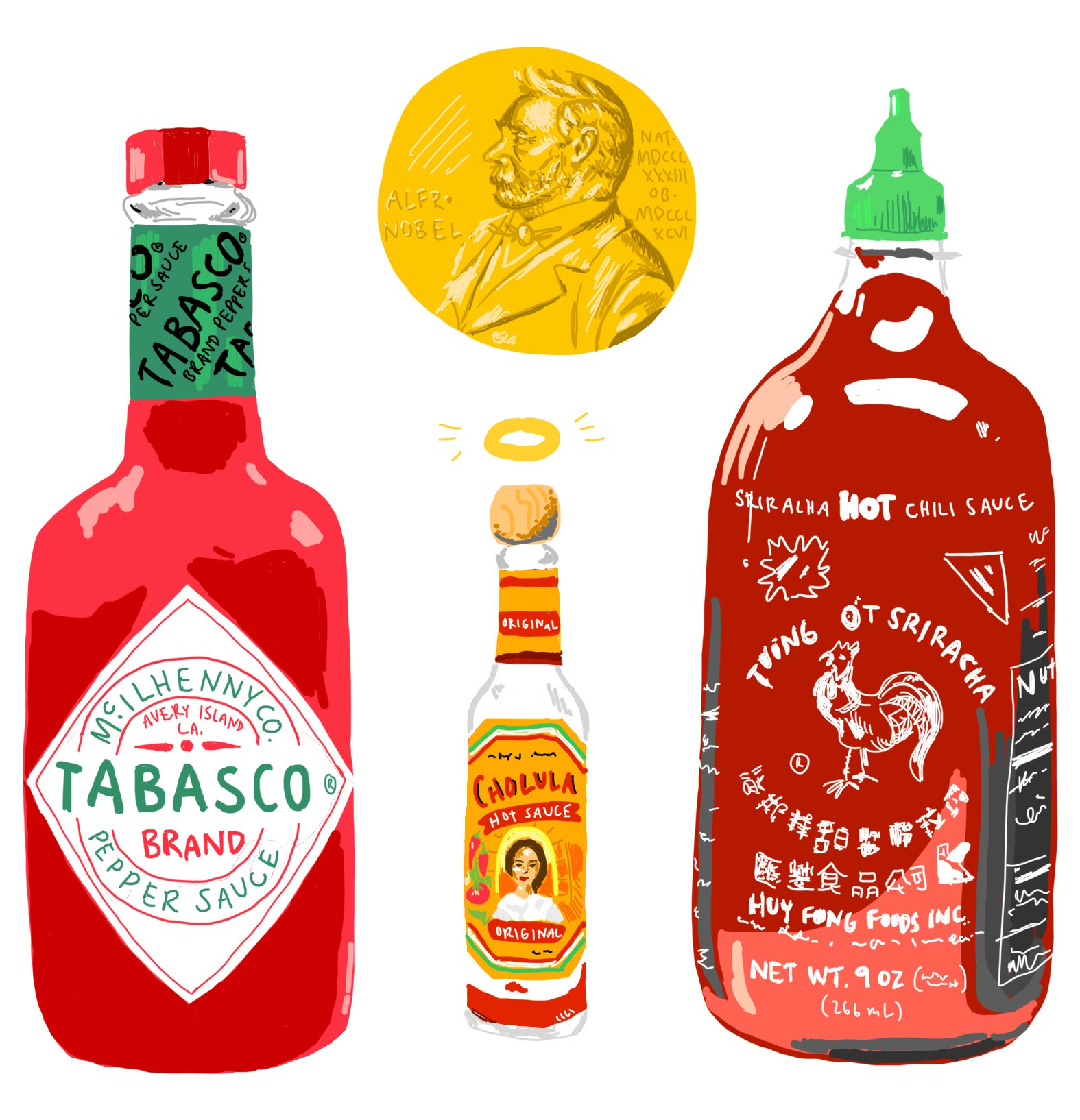Cholula is special: mild enough to highlight the taste of a meal without overpowering the flavor profile with spice. It is the perfect pick-me-up before facing Chem 31A in a NyQuil-induced fever dream. It is a precious resource. Last week, Stanford professor Guido Imbens won the 2021 Nobel Prize in Economic Sciences for his groundbreaking work using causal relationships to predict the Cholula hot sauce shortage at Lakeside Dining.
Imbens’ important research details multiple sources of the Cholula Deficit. Aside from the unusual size of the Class of 2025, Imbens also found that West Lag has a particularly high concentration of frosh with “sophisticated palettes.” Imbens predicted that Cholula, objectively the best hot sauce available*, would be the first to go.
Another contributing factor to the Cholula shortage is the influx of frosh from GovCo who miss Ricker’s early breakfast. Unable to wake up before 9 a.m., these stumbling, bleary-eyed students make their way to Lakeside to get in some calories before the 10-mile walk to their first classes.
The last cause — and arguably the most worrying — is one anonymous student who has single-handedly stolen 10 bottles of Cholula from Lakeside since the start of the quarter. Before anyone else could anticipate this phenomenon, Imbens calculated that Stanford dining halls should maintain a 20-Cholula-bottle cushion at all times for such dire situations.
Imbens and his team conducted numerous data analyses proving the Cholula Deficit will only widen in coming months. As frosh settle into their routines and more and more students discover the wonder of Cholula, Imbens speculates the average intake per capita could skyrocket, reaching unrivaled consumption levels.
Luckily, all hope is not lost. Thanks to Imbens’ meaningful work, we have a clearly outlined plan for Cholula redistribution. Arrillaga has had better luck, and appears to have an obscene Cholula excess.
“In trying times, we must share the resources that unite us, and I believe that it is Arrillaga Dining’s duty to aid its neighbor in need,” Imbens stated. “In the meantime, hungry GovCo frosh should consider making the trek to an Arrillaga brunch, where Cholula is plentiful.”
*Joshua D. Angrist & Guido W. Imbens (1995) Two-Stage Least Squares Estimation of Average Causal Effects in Models with Variable Treatment Intensity, Journal of the American Statistical Association, 90:430, 431-442, DOI: 10.1080/01621459.1995.10476535
Editor’s Note: This article is purely satirical and fictitious. All attributions in this article are not genuine, and this story should be read in the context of pure entertainment only.
